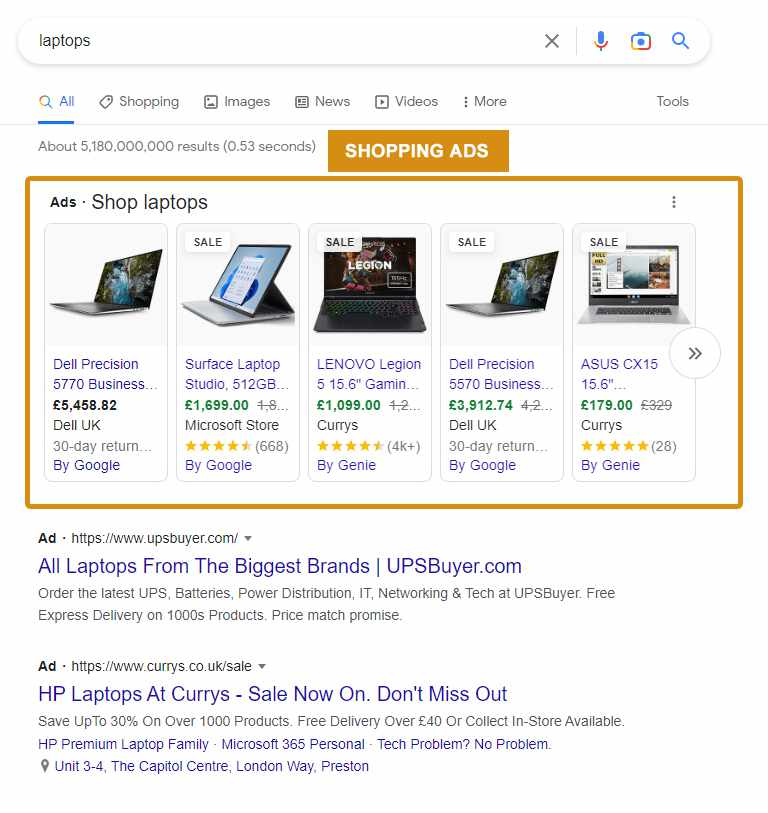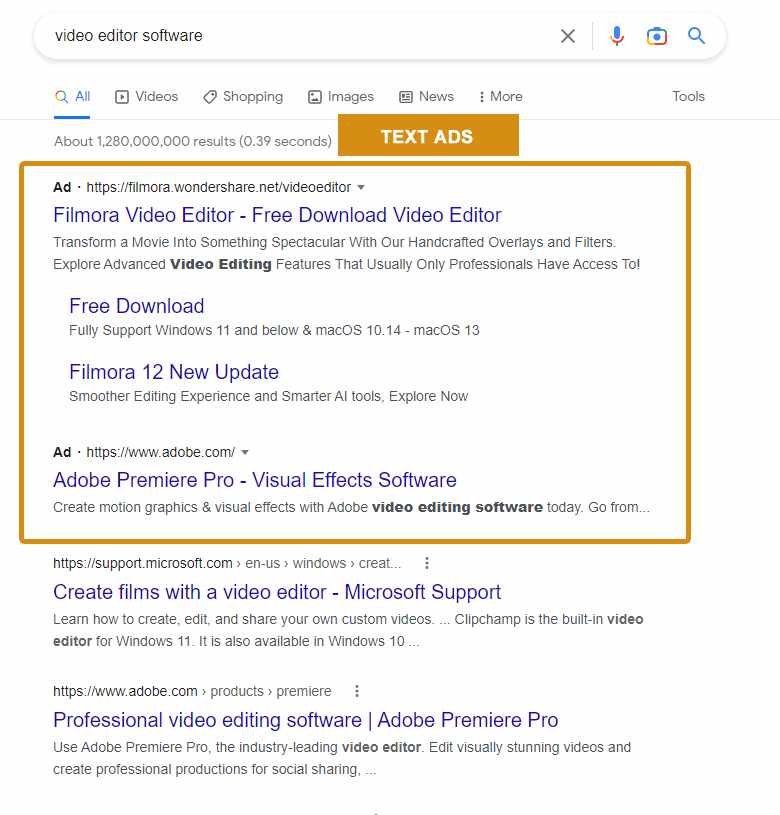
In an era of digital dominance, the importance of Search Engine Optimization (SEO) cannot be overstated. SEO is the backbone of online marketing, and for a simple yet crucial reason – SEO empowers businesses brand image to gain visibility, drive traffic, and grow their brand online.
The Importance of SEO: Why Does it Matter?
You may ask, ‘Why is SEO important in digital marketing?’ The answer lies in how people use search engines. Most online experiences begin with a search engine, and nearly three-quarters of searches start on Google. By optimising a website for search engines, you can increase both the quality and quantity of website traffic by exposing your brand to a broader internet audience.
Introducing the Main Types of SEO
‘What are the main types of SEO?’ is a common question amongst digital marketing beginners. The world of SEO can seem complex and daunting, but breaking it down into types can help simplify the understanding. In essence, SEO can be categorised into five primary types: On-page SEO, Technical SEO which includes Semantic SEO as well as back end code optimization, Off-page SEO, Local SEO, and Mobile SEO. Each type holds its significance and best practices, which we’ll explore throughout this guide.
On-Page SEO
What is On-Page SEO and Why is it Important?
On-page SEO, often called on-site SEO, is when individual web pages are optimised to rank higher and attract relevant traffic from search engines. It involves carefully crafting page content, HTML source code, and website architecture to be more appealing and accessible to search engine spiders. On-page SEO is paramount as it directly influences how search engines interpret a website and where they rank it in their listings.
Best Practices for On-Page SEO: How to Optimise Your Website?
Following certain best practices for on-page SEO is essential to optimise your website for search engines. These practices can help improve your website’s visibility and ranking on search engine result pages.
- Ensure that your website has well-crafted and unique content valuable to your visitors. Avoid copying content from other sources.
- Use targeted keywords throughout your content, including title tags, meta descriptions, and headers.
- Optimising images with alt tags and providing a clear, logical site structure with internal linking can significantly improve your website’s SEO.
Remember that an intuitive, user-friendly site design can enhance user experience, positively impacting SEO rankings.
How Does On-Page SEO Impact Your Website’s Visibility?
Effective On-Page SEO is fundamental for enhancing your website’s visibility. Optimising website elements can improve search engine crawlers’ ability to index and rank your site higher in SERPs. Ultimately, a higher ranking equals more visibility, leading to increased organic traffic and, potentially, better conversion rates.
Off-Page SEO
What is Off-Page SEO and Why is it Important?
Off-page SEO encompasses all activities outside your website to improve its visibility on search engines. These activities include link building, social media marketing, and online reputation management. The significant role of Off-Page SEO lies in its capacity to boost your website’s credibility and reliability. Search engines consider these ‘outside’ signals as indications of the quality and relevance of your content, ultimately influencing your website’s position in search engine results.
Best Practices for Off-Page SEO: How to Boost Your Website Visibility?
Adopting effective Off-Page SEO strategies can significantly enhance your website’s visibility. One fundamental practice is link building: obtaining high-quality backlinks from reputable and authoritative websites can increase your site’s credibility in the eyes of search engines. Another strategy involves social media marketing; promoting your content on various platforms can drive more traffic to your site. Furthermore, managing your online reputation through customer reviews and testimonials can positively influence your website’s SEO. Remember, Off-Page SEO, though mainly out of direct control, can be managed and improved through strategic planning and ongoing efforts.
How Does Off-Page SEO Influence Your Website’s Rank in SERPs?
Off-page SEO is critical in determining your website’s rank in Search Engine Results Pages (SERPs). When ranking sites, Google and other search engines consider Off-Page factors like backlinks, social signals, and online reputation. A robust Off-Page SEO strategy can inspire trust and authority, leading to higher rankings, increased web traffic, and improved conversion rates. While you cannot control what others say about your site, effective Off-Page SEO practices can help shape perception and boost your site’s visibility.
Technical SEO
What Is Technical SEO and Why Is It Important?
Technical SEO or Semantic SEO refers to optimising your website for the crawling and indexing phase. It involves several techniques, such as improving site speed, creating a responsive design for mobile users, and developing an XML sitemap, all of which aim to improve the website’s usability and search engine accessibility. Its importance lies in providing search engines with a better understanding of your website content. In terms of technical SEO, a well-optimised website ensures efficient crawling and indexing for improved organic rankings.
Best Practices for Technical SEO
There are several best practices when it comes to optimising your website’s technical SEO:
- Ensure your website loads quickly; slow loading speeds can deter users and negatively impact your site’s ranking.
- Your site should be mobile-friendly; with most users accessing the web through their mobile devices, this is crucial for user experience and ranking.
- Creating a clean and efficient sitemap allows search engines to navigate your site easily.
- Implementing SSL security is a must to protect your website’s visitors and boost your site’s trustworthiness in the eyes of search engines.
How Can Technical SEO Improve Your Website’s Visibility?
Improving your website’s technical SEO can significantly enhance your site’s visibility in SERPs. When search engines can crawl and index your website efficiently, they can better understand and rank your content, improving site visibility. Furthermore, implementing technical SEO best practices such as improving site speed and ensuring mobile-friendliness can result in a superior user experience, encouraging users to spend more time on your site and boosting your rankings in SERPs.
Local SEO
What is Local SEO and Why is it Important?
Local SEO optimises your online presence to attract more business from relevant local searches. These searches take place on Google and other search engines. Local SEO is critical for smaller businesses and brick-and-mortar stores in specific locales. With the rise of ‘near me’ and ‘close by’ type searches, Local SEO is becoming increasingly important to ensure your business is visible to users in your area.
Best Practices for Optimising Local SEO
It is crucial to ensure that your business is listed on Google My Business and Bing Places for Business to maximise Local SEO. This step is vital for enhancing your online presence and attracting more potential customers to your establishment. These platforms allow you to list your business’s name, address, and phone number, making it easier for customers to find you. Reviews also play a critical role in Local SEO, so businesses should encourage satisfied customers to leave reviews on Google and other platforms. A strong, positive online review profile increases the chances of attracting new local customers. Using local keywords in your website’s metadata and content can also help boost your visibility in local search results.
How Can Local SEO Impact Your Business?
Frequently, business owners ask about the impact of Local SEO on their business. Local SEO can significantly improve your online visibility, bringing more foot traffic and local customers to your business. When your business ranks highly in local search results, it’s more likely to be seen by potential customers in your area. This can increase sales and revenue, making Local SEO a critical aspect of your digital marketing strategy.
Mobile SEO
Definition and Importance of Mobile SEO
Mobile SEO involves optimising websites for mobile and tablet users. As mobile usage continues to grow worldwide, ensuring that your website is mobile-friendly is becoming increasingly important. A mobile-optimised website enhances user experience and boosts search engine rankings. Google gives more importance to the mobile version of a website when it comes to indexing and ranking, known as mobile-first indexing. Therefore, neglecting Mobile SEO can lead to a drop in your website’s search engine visibility.
Best Practices for Mobile SEO
When it comes to Mobile SEO, a responsive design is key. A website design that adjusts to fit the screen of the device a user is using enhances readability and usability. Also, the website’s load speed plays a crucial role in Mobile SEO. Google considers page speed a ranking factor, meaning slow-loading pages could hurt your rankings. Finally, ensure that all resources on your site (images, CSS, JavaScript) can be crawled and indexed by Google for a comprehensive understanding of your website’s content.
How Can Mobile SEO Impact Your Business?
Business owners often inquire about the potential impact of Mobile SEO on their business. By implementing effective Mobile SEO strategies, you can significantly boost your online visibility, particularly among users who primarily browse the internet on their mobile devices. A website optimised for mobile devices can increase engagement, conversion rates, and customer loyalty. Hence, Mobile SEO is crucial to a comprehensive and effective digital marketing strategy.
Mastering SEO in all forms, be it On-page, Off-page, Technical, or Mobile, is pivotal to digital marketing success. When employed effectively, this interconnected web of SEO strategies can dramatically enhance your website’s visibility on search engines, increasing organic traffic and potential business growth. Though the ever-evolving landscape of SEO can be challenging to navigate, with diligence, ongoing learning, and adaptation, businesses can harness its power to thrive in today’s competitive digital marketplace. Thus, genuinely mastering SEO is about understanding its many types and integrating them in a balanced, holistic approach.
How We Can Help Your Business
Contact One Web Digital today to learn more about how we can help you with SEO strategy to increase your brand awareness and leads.





